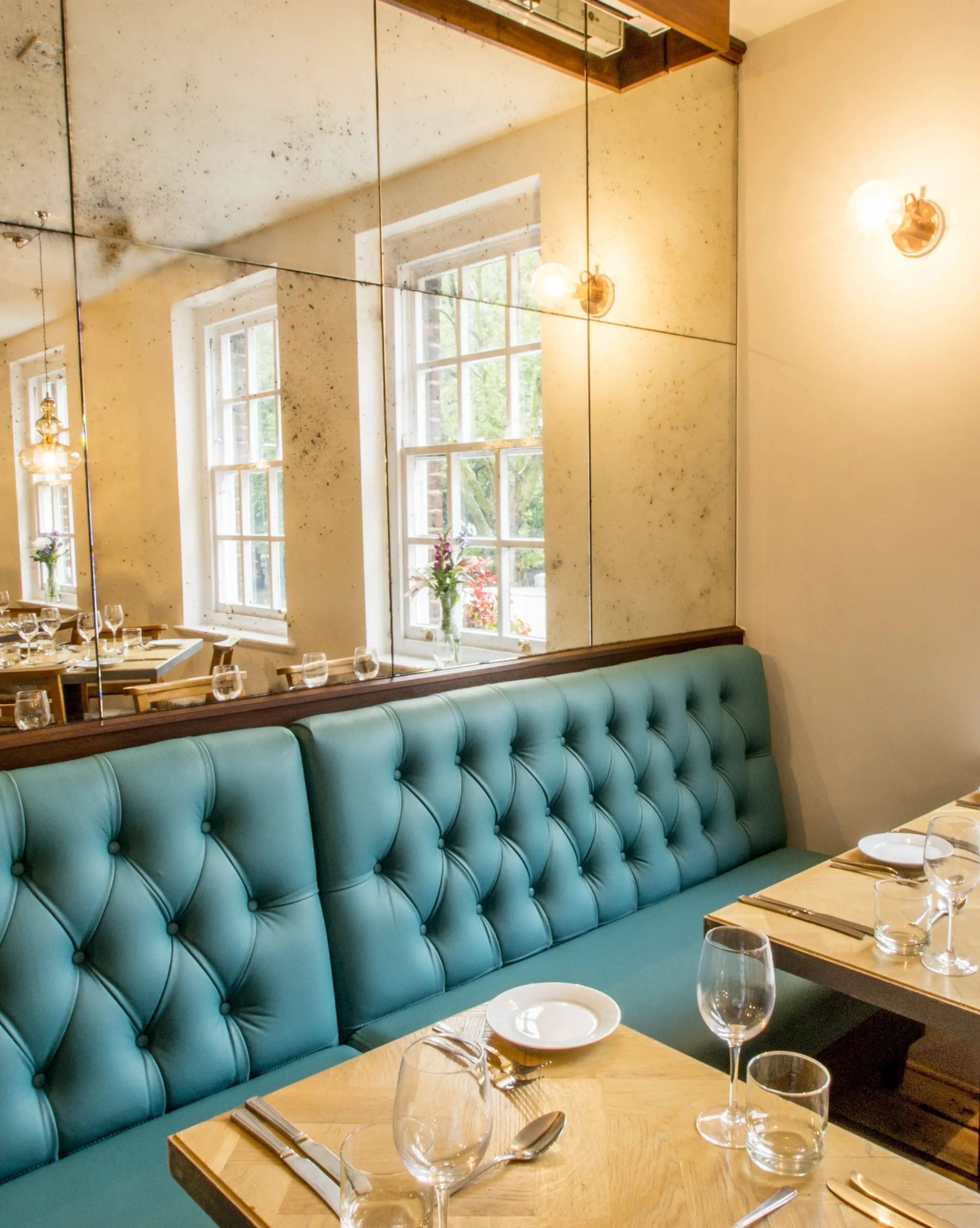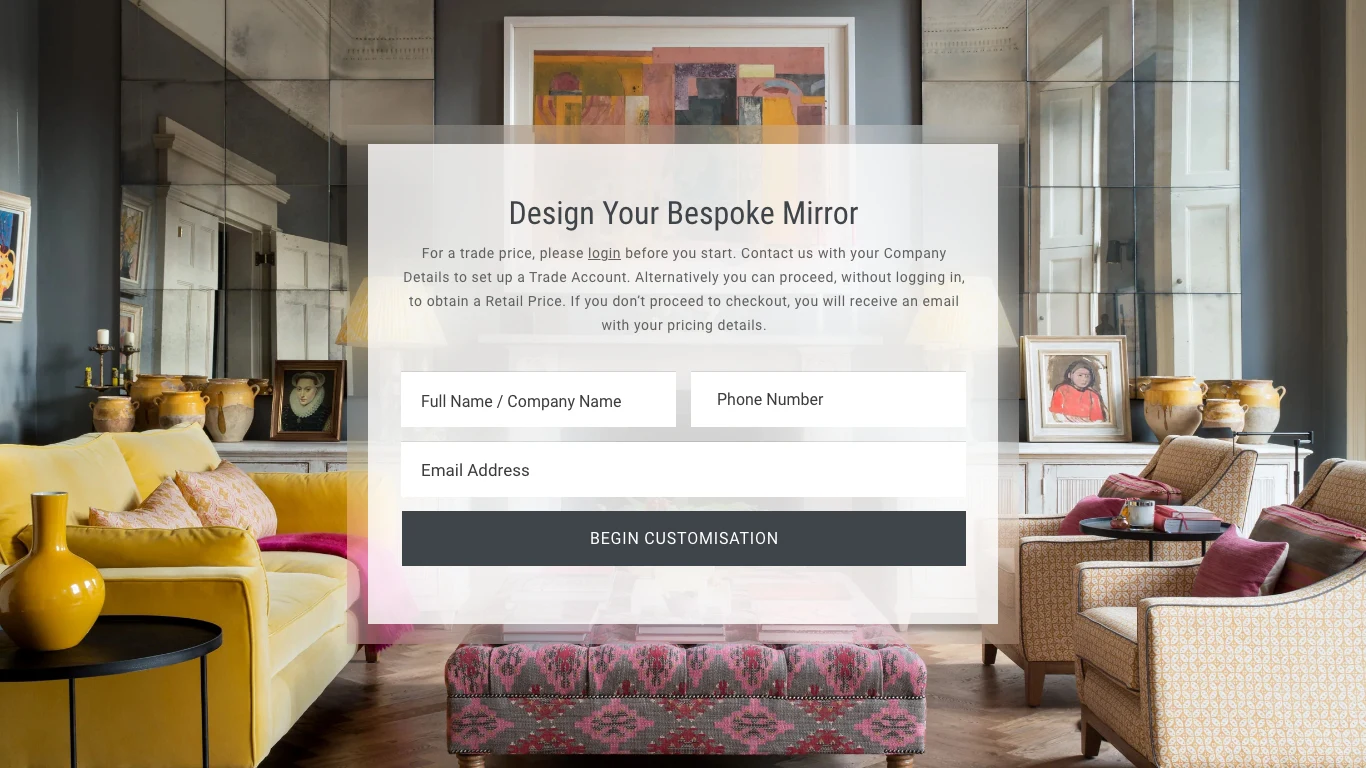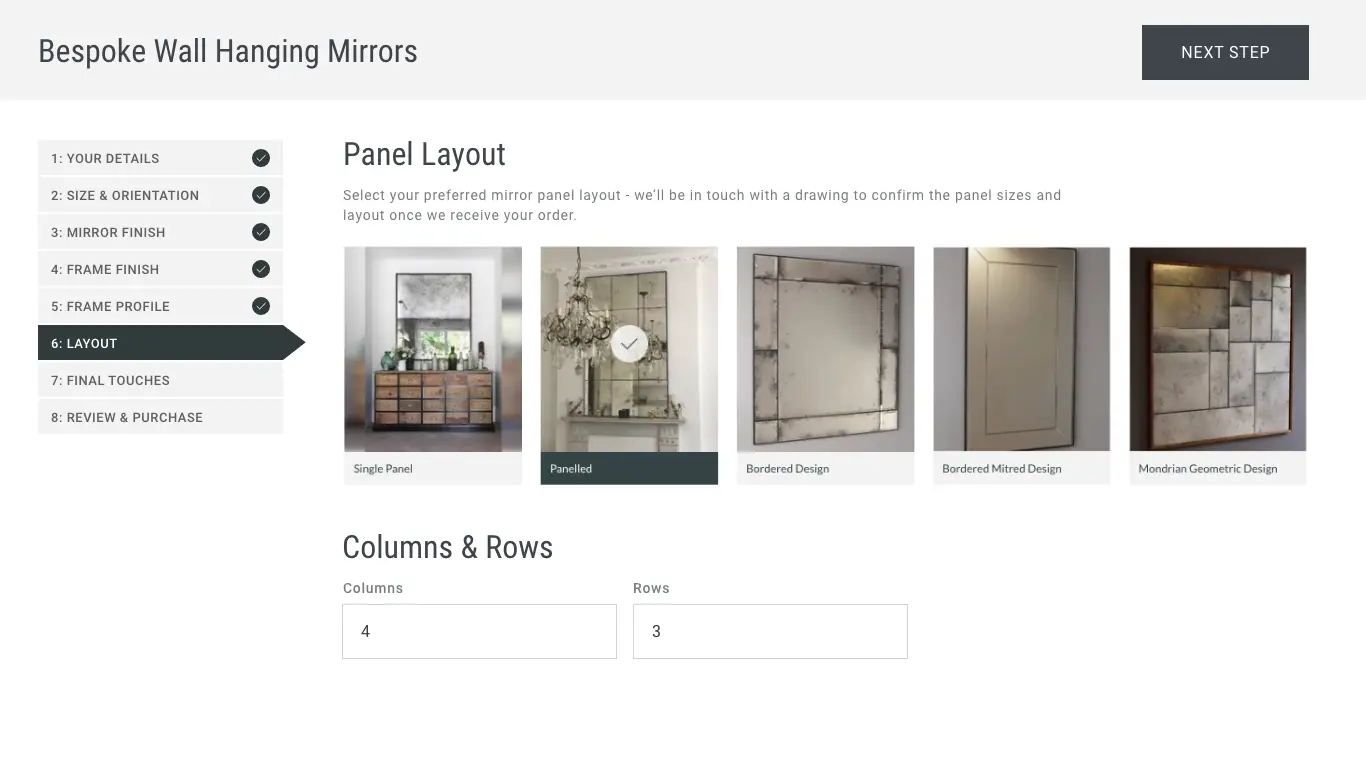

We created a unique and personalised shopping experience for Rough Old Glass: a brand selling high-end antiqued mirrors and mirror tiles. The new feature would include B2B functionality perfect for tradespeople installing home decor, while being welcoming to independent consumers too. Our custom product builder allowed anyone to easily build their own product – by specifying their exact requirements to get a quote on bespoke mirror and tile orders. The end result was a slick and responsive product builder with massive potential for order customisation, and will serve Rough Old Glass well, for years to come.
Rough Old Glass are specialists at making mirrors. Their striking designs and antiqued effects combine to create unique pieces, from small framed mirrors to full wall-to-ceiling mirror-panelled walls.
Their range is extensive – and that expands exponentially when you consider the many different ageing and weathering effects that customers can choose to have applied to their order. The end result is something special, which can easily become the centrepiece of any room… and is a guaranteed conversation starter!


When Rough Old Glass came to Inspira with a brief for a new bespoke product builder, we knew we’d have to match these prestige products with a suitably sophisticated purchase journey. More than that, it would need the flexibility to allow for advanced custom product creation too.
Rough Old Glass are able to personalise orders to an impressive degree. Traditionally, they had taken orders by phone or email, with an operator discussing customisations with the buyer – before manually calculating a price for them. As you can imagine, this was very labour intensive!
The idea of this new system was to automate much of the process, and allow Rough Old Glass to put their energy into business growth.
However, to match the quality of service provided before, the new store interface would need to be incredibly adaptable – have an intelligent formula for price calculations – and also be robust and intuitive enough to serve their many high-volume B2B customers.


The core functionality that we would need to develop for Rough Old Glass, was a system that allowed customers to build their mirror or bespoke tiles by working through a simple step by step process.
So we designed a custom product builder interface for them.
With so many variables available in Rough Old Glass’s product offering, our first step was to determine a logical way to structure the options for customers.
We ultimately split the selection process into two streams, dependent on whether customers were looking for a bespoke mirror or mirrored tiles. Within those categories, we then included the following variables for customers to select.

When customers begin the process of building an order, the custom product builder walks them through a simple step-by-step customisation process. By presenting the choices in this way, we managed to turn a potentially very complex range of variables into a streamlined series of illustrated decisions.
For example, variables available for bespoke mirrors would include:
In addition to choosing:

Depending on the customer’s selections above, a number of further choices may then become available. For example, choosing the “panelled” option would lead to a screen inviting the customer to specify the number of rows and columns.
Finally, there are multiple options available when it comes to mirror edging – with customers being able to select between polished edges, or bevelled edges in a range of different depths.
We offered a separate stream for personalising and choosing bespoke mirrored tiles, with the variables here including:
Size – In the case of bespoke tiles, customers have a number of options regarding size. They might also want to combine multiple different sizes in the same order, for example an order might contain 100 rectangular tiles at 100 x 200mm, plus 50 square tiles at 100 x 100mm, and so on.
Once the customer has finished creating their product using the custom product builder, the store needs to display the total price for the order. As each of the many variables detailed above would affect the price, we had to design a system that could logically and reliably track all price variations in order to calculate the total cart value.
This would sometimes involve tracking multiple metrics or factors of measurement, for example:
As we brought together these product builder features to form the upgraded ecommerce store for Rough Old Glass, we also built in a number of additional features, such as:
B2B/trade functionality – When approved tradesmen log into the store they receive trade discounts, and may also submit orders on Net30 terms (i.e. with no upfront payment).
Save and return – If a customer doesn’t complete the order, they are sent a reminder email which features a link to their saved basket, including all customisations. And this even works on a micro level! For example, if a customer has to go and take measurements halfway through designing a single product, the system will still save every choice they made so far.
The project was delivered to order, according to schedule – and by the end, we can safely say there is no other website quite like the Rough Old Glass store!
With an utterly unique shopping interface catering to the brand’s high degree of personalisation options, this bespoke B2B solution gave customers the perfect tool for building precise and specific orders.
Slick and easy to use, the new Rough Old Glass store has been a huge success, catering perfectly to the brand’s B2B and trade custom, while also succeeding at presenting their luxurious and sophisticated range to homeowners.
--
Would your business benefit from a bespoke shopping experience? Here at Inspira, we love working with our clients to design one-of-a-kind solutions for personalised stores and B2B ecommerce outlets.
Just tell us what you need – get in touch today, and let our Shopify development experts advise you on how to maximise your online trade!

